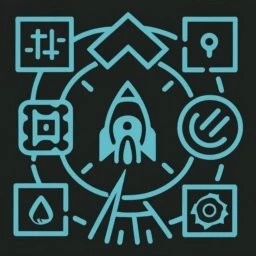
This website uses cookies
We use Cookies to ensure better performance, recognize your repeat visits and preferences, as well as to measure the effectiveness of campaigns and analyze traffic. For these reasons, we may share your site usage data with our analytics partners. Please, view our Cookie Policy to learn more about Cookies. By clicking «Allow all cookies», you consent to the use of ALL Cookies unless you disable them at any time.
Introduction:
Rust, a systems programming language, has been gaining popularity for its focus on performance, reliability, and productivity. Its ecosystem is rich with libraries, frameworks, and tools that aid developers in creating robust and efficient applications. This article explores the diverse components of Rust's ecosystem, highlighting the most notable libraries, frameworks, and tools available to Rust developers.
Libraries:
serde: Serde is a framework for serializing and deserializing Rust data structures efficiently and generically. It is widely used for handling JSON, YAML, and other data formats, making it a crucial library for developing web applications and APIs.
reqwest: Reqwest is an ergonomic, high-level HTTP Client for Rust. It simplifies the process of sending HTTP requests and receiving responses, making it a go-to library for developers working with web services2.
tokio: Tokio is a runtime for writing reliable, asynchronous applications with Rust. It provides an event-driven platform that facilitates the development of high-performance I/O bound applications, such as web servers, databases, and file systems.
Frameworks:
Rocket: Rocket is a web framework for Rust that focuses on ease-of-use, safety, and speed. It provides a simple and intuitive API, allowing developers to build robust and efficient web applications with minimal boilerplate code.
Actix: Actix is a powerful, pragmatic, and extremely fast web framework for Rust. It is known for its high performance and is a suitable choice for building a variety of web services, from simple web apps to complex microservices architectures.
Diesel: Diesel is an ORM (Object-Relational Mapping) and query builder for Rust. It enables developers to interact with databases in a type-safe and concise manner, reducing the risk of runtime errors and SQL injection attacks.
Tools:
Cargo: Cargo is the official package manager and build tool for Rust. It handles project creation, building, testing, and dependency management, making it an indispensable tool for every Rust developer.
Rustfmt: Rustfmt is a tool for formatting Rust code according to style guidelines. It ensures that code is consistently styled, improving readability and maintainability.
Clippy: Clippy is a collection of lints to catch common mistakes and improve Rust code. It provides helpful tips and suggestions to enhance code quality and adhere to Rust's best practices.
Community and Learning Resources:
The Rust community is vibrant and welcoming, with numerous resources available for learning and improving Rust programming skills. Rust's official documentation, user forums, and online platforms like Rust by Example and The Rust Programming Language are excellent starting points for newcomers to the language.
Conclusion:
Rust's ecosystem is flourishing with a plethora of libraries, frameworks, and tools designed to aid developers in creating secure, efficient, and reliable applications. The combination of a supportive community and extensive learning resources makes Rust an attractive option for developers looking to explore new technologies and programming paradigms.
References:
Serde: https://serde.rs/
Reqwest: https://docs.rs/reqwest
Tokio: https://tokio.rs/
Rocket: https://rocket.rs/
Actix: https://actix.rs/
Diesel: http://diesel.rs/
Rustfmt: https://github.com/rust-lang/rustfmt
Rust Documentation: https://doc.rust-lang.org/



